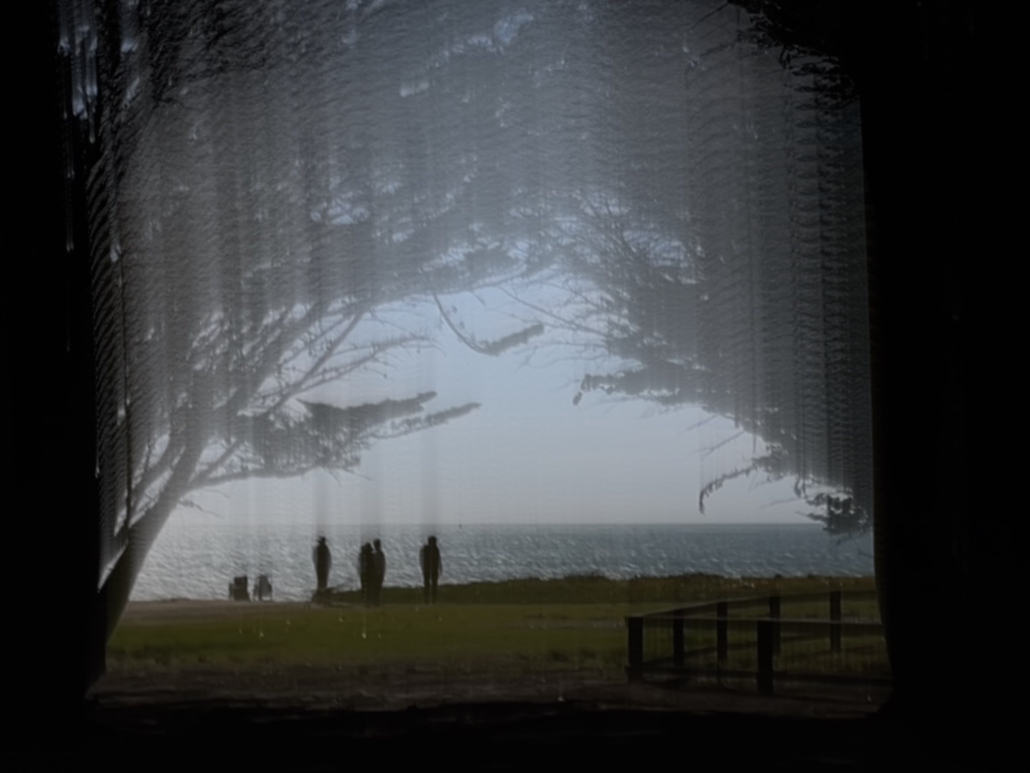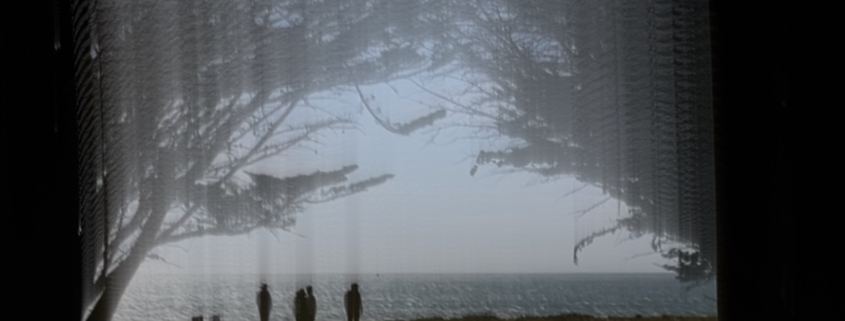Editor’s Epilogue: A letter to Half Moon Bay and the innocence of memories

When we still lived in the Bay Area, my family and I often went to Half Moon Bay. By age five, when I could remember most things for long enough, the hour-long drive was familiar, almost dreamlike. West through the 580, veering into Route 92, through steep-ledged roads etched into the sides of valleys, past quaint pumpkin patches and Christmas tree farms; and at once the ocean reveals herself — silent and mighty, stretching ever wide over the horizon.
My parents had frequented this spot for dates. That was back in the noughties, when they wore matching chic shades, probably from T.J. Maxx, and when my mother felt young enough to wear her neon peach-red leather coat. Then there was me: The beach at Half Moon Bay was the first one I ever saw after I was born, my mother told me. I’d torn myself out of her and my father’s hands, straight for the roaring ocean, screaming. I was stupid, soaked — but free. As the day grew old and wind cut into our cheeks, we huddled together, mother, father and I, watching the sun slowly sink below the water — and family felt warmer than the heaps of layers we’d worn to prevent exactly this sort of thing. But it didn’t really matter.
Then life came and went, and two years ago — the last time I’d gone — it was just my mother and I, looking over that same sun setting over the laughing couples and the swaying ships and the unspoken deafening absence of the person we’d been forced to leave behind.
But in another way, it felt right to have my mother behind the wheel and myself in the passenger seat, taking the ritual drive to Half Moon Bay, basking in what is and what could have been. In the silence of the car, in the crashing of the waves, in the cawing of the seagulls, there was a feeling that it was just us. It was utopia.
On Jan. 23, a gunman killed seven people in the neighborhood, in two separate shootings, with a legally obtained firearm — allegedly over a $100 repair bill. Somehow, it was one of the less devastating shootings to come out of the news that week.
I felt the urge to text my mother. She’d seen it too. The deaths, the arrests, the thoughts and prayers. Neither of us knew what to say. So we didn’t say anything at all.
As we grow older, our sacred places grow desecrated. At playgrounds, we remember the running and the piercing screams of joy, but we also notice the rust growing on the welding. At beaches, our first concern becomes not the roaring sea in front of us, but the Sisyphian task of finding parking in a gentrified beachfront. As early as in elementary school, we find in classrooms not spaces for learning and growth, but bloodstains, bullet holes and hurriedly censored bookshelves. And for many — Black, Indigenous people and people of color, APIA, LGBTQIA, the “other” in a sea of “us” — innocence was never given to us from the start.
As a journalist, I understood it to be my duty to confront these desecrations day after day after day, and to reveal them to the world. I resorted to devouring the news, convinced that one thing after another was in utter ruin and chaos, horrified at the reality unfolding on my screen but unable to look away. But at some point, I had to force myself to realize: Enough is enough.
I just want to live.
I write because I just want to live. And that means preserving, if not the little sanctity left in the places and the people I love, then the memory of how it used to be or a dream of how it could be. Utopia is not feasible, nor will it ever be feasible, but we might as well try. For at least thousands of years, we’ve depended on a notion of utopia to even survive, to have the strength to press onward. Now is no different.
Over Presidents’ Day weekend, I went again with my mother. We walked, as we always do, to the enormous tree that guards the yawning cliffside. It splits at the roots into two thick branches, each stretching out for a little then giving way to gravity and drooping at the end. It’s always been there, that tree — it’s been there so long there’s a well-trodden path cutting through the split, darting for a bench nearby. I walked the path through the roots; I pressed my hand on the old bark. And I was reminded, again, of the constant in my life that is Half Moon Bay — whose roots are older than memory, but whose leaves still sway and fall and grow anew.
“Editors’ Epilogue” is a rotating column featuring a new Daily Trojan editor in each installment and their experiences of living in what seems to be an irrepressible dumpster fire of a world. Jonathan Park is the news assignments editor at the Daily Trojan.

